| Page last updated
Sun 07 Sep 2025 |
The Freshwater Mussels (Unionoida) of the World (and other less consequential bivalves)
FM(U)otW(aolcb) is the web version of the MUSSEL Project Database. Follow the links to browse the data or use the custom Google search field. Either way, you win!
This page documents data for Lea (1841), such as genera and species attributed to that publication (including known misspellings, misidentifications, and other unavailable names) as well as taxonomic opinions, if available. Taxonomic opinions refer to uses of genera and species as valid and invalid in that work. The MUSSEL Project Database has moved to a new server, with a new URL! The new address for this page is: https://musselpdb.org/db.php?ty=publ&id=91
Search the database pages:
|
|
Publication information
Lea, I. 1841. Continuation of Mr. Lea's paper on fresh water and land shells. Proceedings of the American Philosophical Society 2: 81-83.
Click here for online access.
Attributed Species Names
Unio sparsus Lea, 1841
 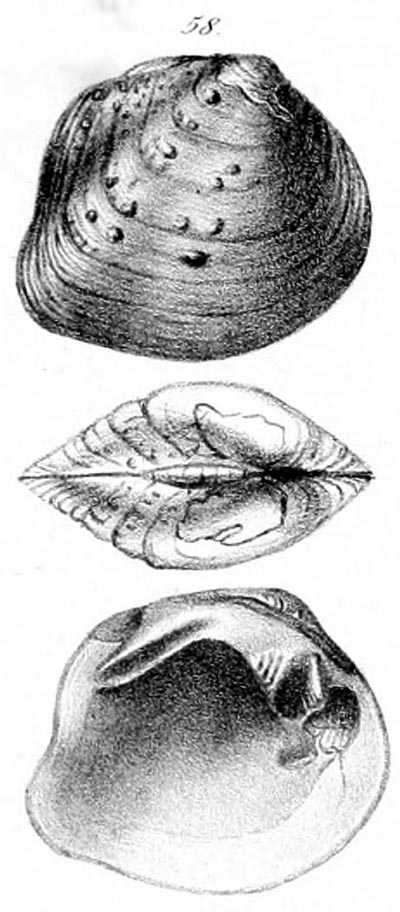
Lea, 1841, Proc. Amer. Phil. Soc. 2: 82.
Lea, 1842, Trans. Amer. Phil. Soc. 8 [O. 3]: 242 [80], pl. 25, fig. 58.
Type(s): HOLOTYPE USNM_84222, Holston R., Tenn.
|
Unio regularis Lea, 1841
 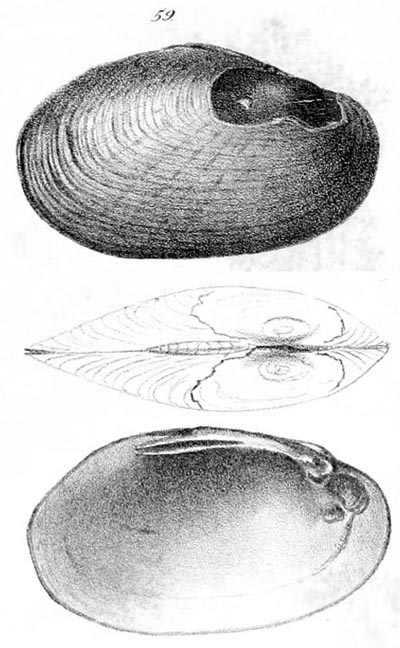
Lea, 1841, Proc. Amer. Phil. Soc. 2: 82.
Lea, 1842, Trans. Amer. Phil. Soc. 8 [O. 3]: 243, pl. 25, fig. 59.
Type(s): HOLOTYPE USNM_85067, French Broad River, E Tenn.
|
Unio moestus Lea, 1841
 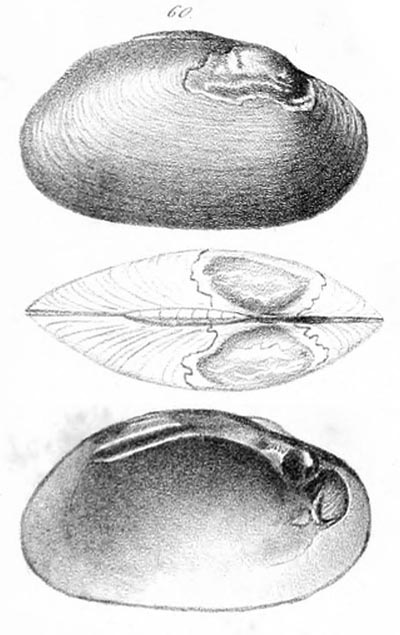
Lea, 1841, Proc. Amer. Phil. Soc. 2: 82 [as ‘mœstus’].
Lea, 1842, Trans. Amer. Phil. Soc. 8 [O. 3]: 244 [82], pl. 26, fig. 60 [as ‘mæstus’].
Type(s): HOLOTYPE USNM_85320, French Broad R., E Tenn.
|
Unio brumleyanus Lea, 1841
Lea, 1841, Proc. Amer. Phil. Soc. 2: 82.
|
Unio argenteus Lea, 1841
 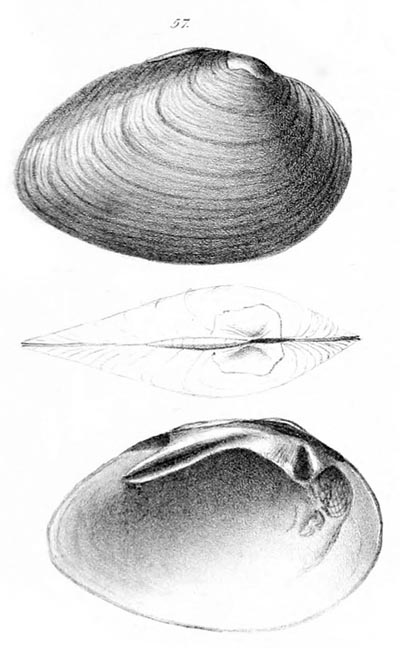
Lea, 1841, Proc. Amer. Phil. Soc. 2: 82.
Lea, 1842, Trans. Amer. Phil. Soc. 8 [O. 3]: 242 [80], pl. 25, fig. 57.
Type(s): HOLOTYPE USNM_84778, Holston R., Tenn.
|
Unio brumbyanus Lea, 1841
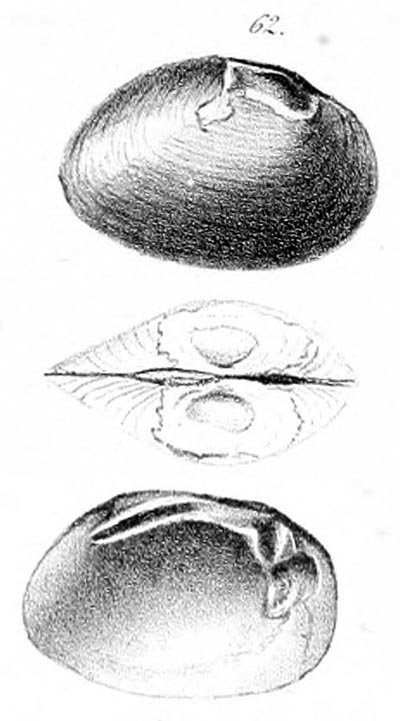
Lea, 1841, Proc. Amer. Phil. Soc. 2: 82 [as ‘brumleyanus’].
Lea, 1842, Trans. Amer. Phil. Soc. 8 [O. 3]: 245, pl. 26, fig. 62.
(error for Unio brumleyanus Lea, 1841)
|
|
Page updated: 08:45:31 Sun 07 Sep 2025 |
|